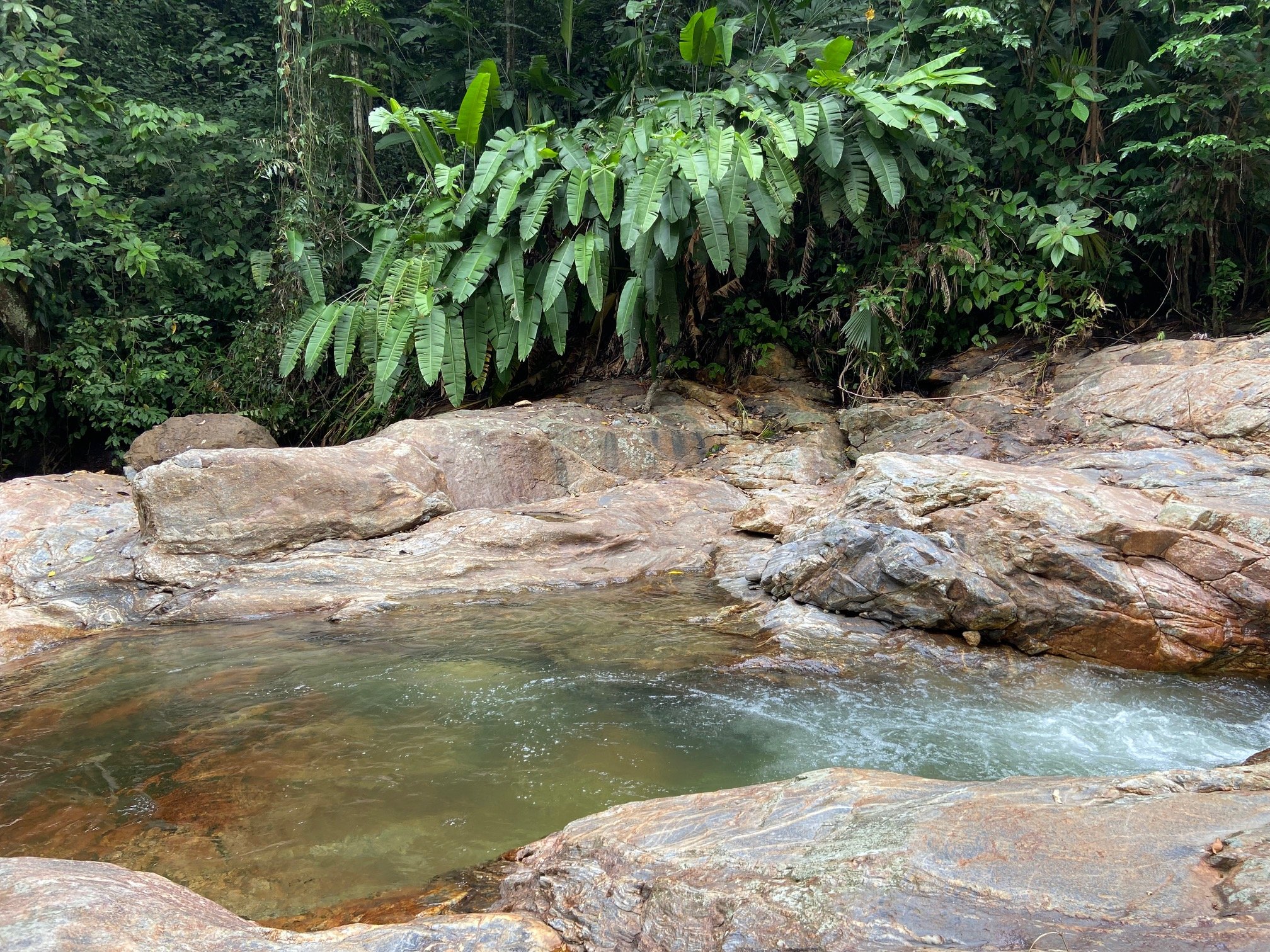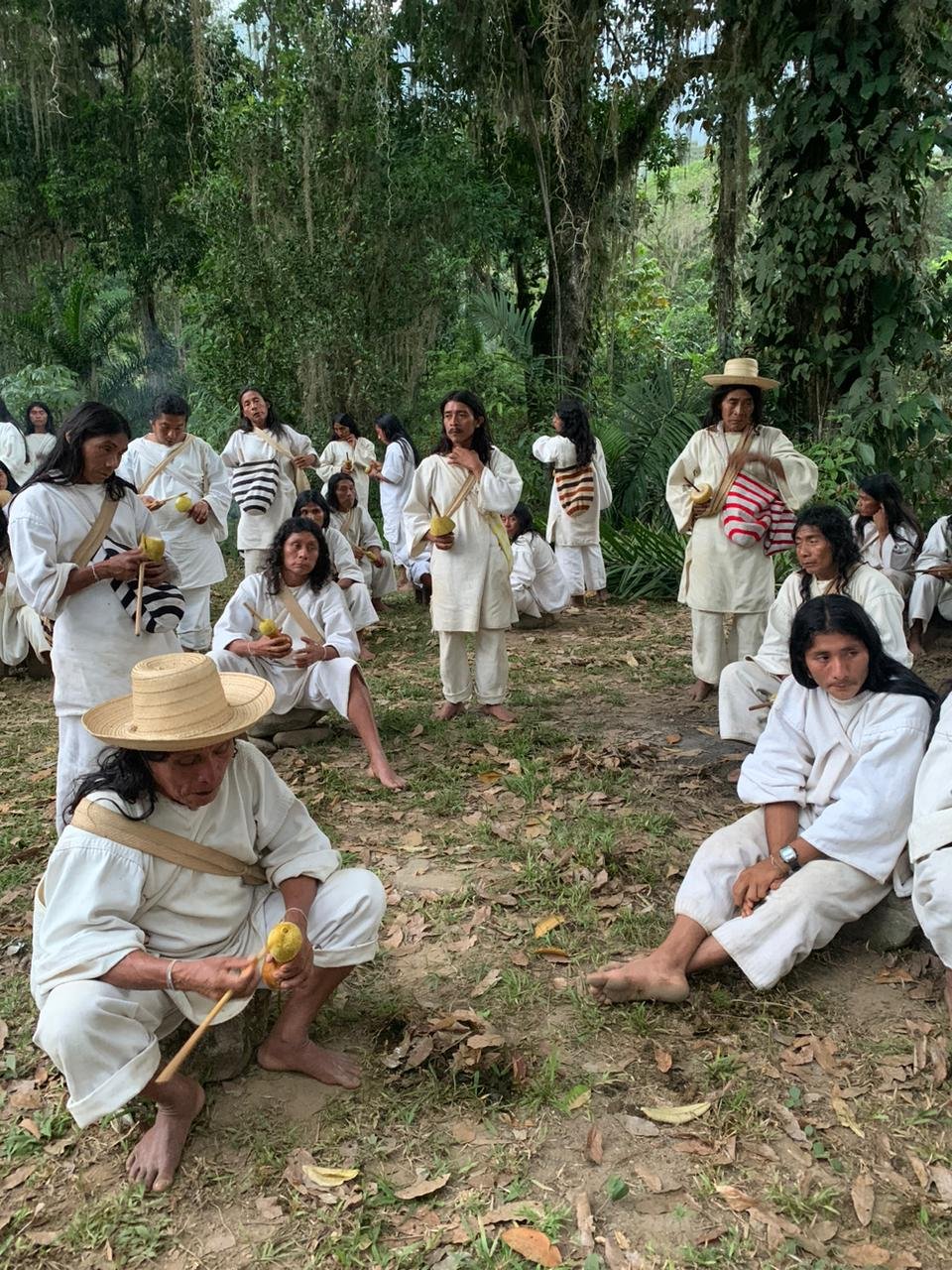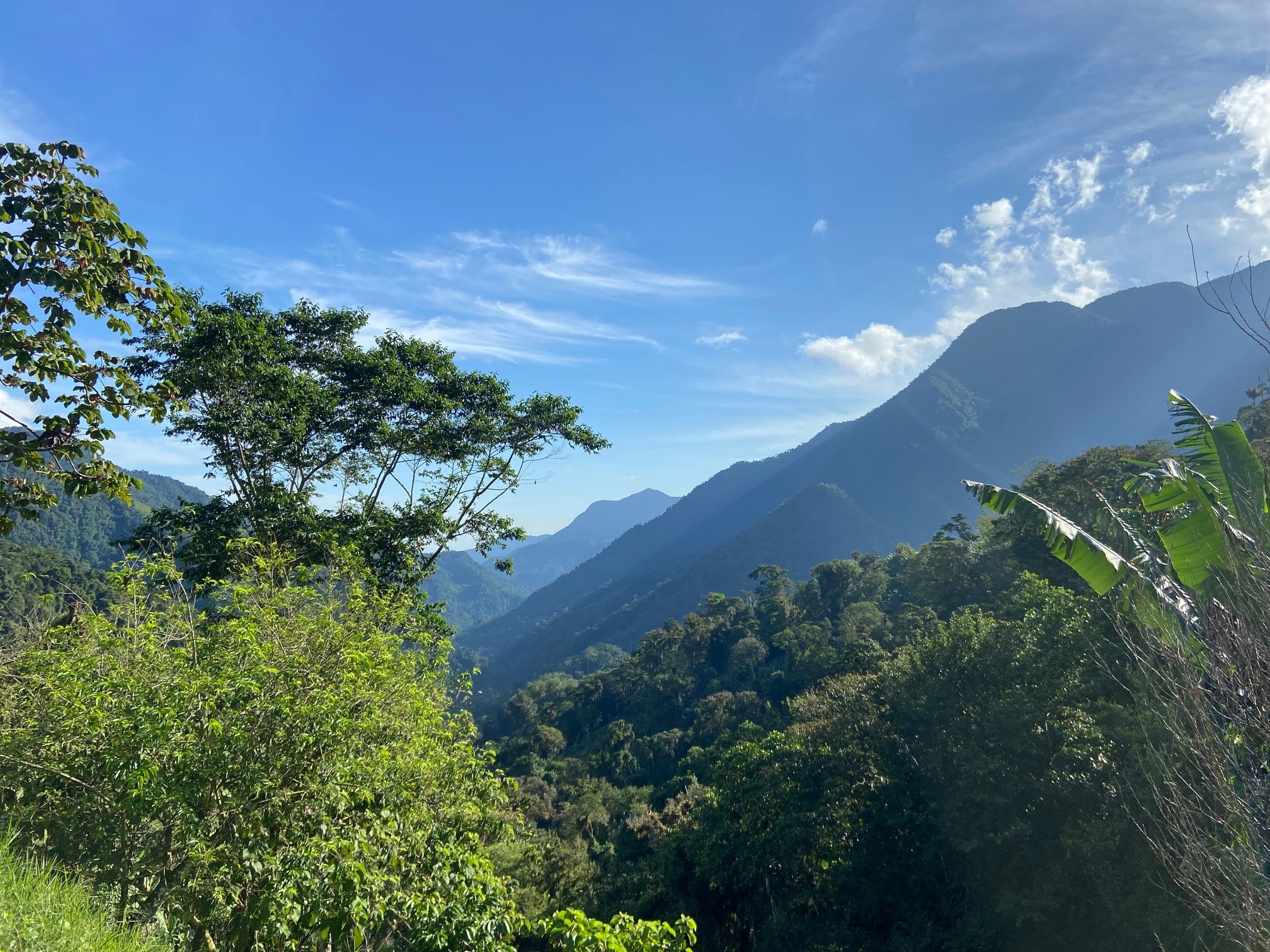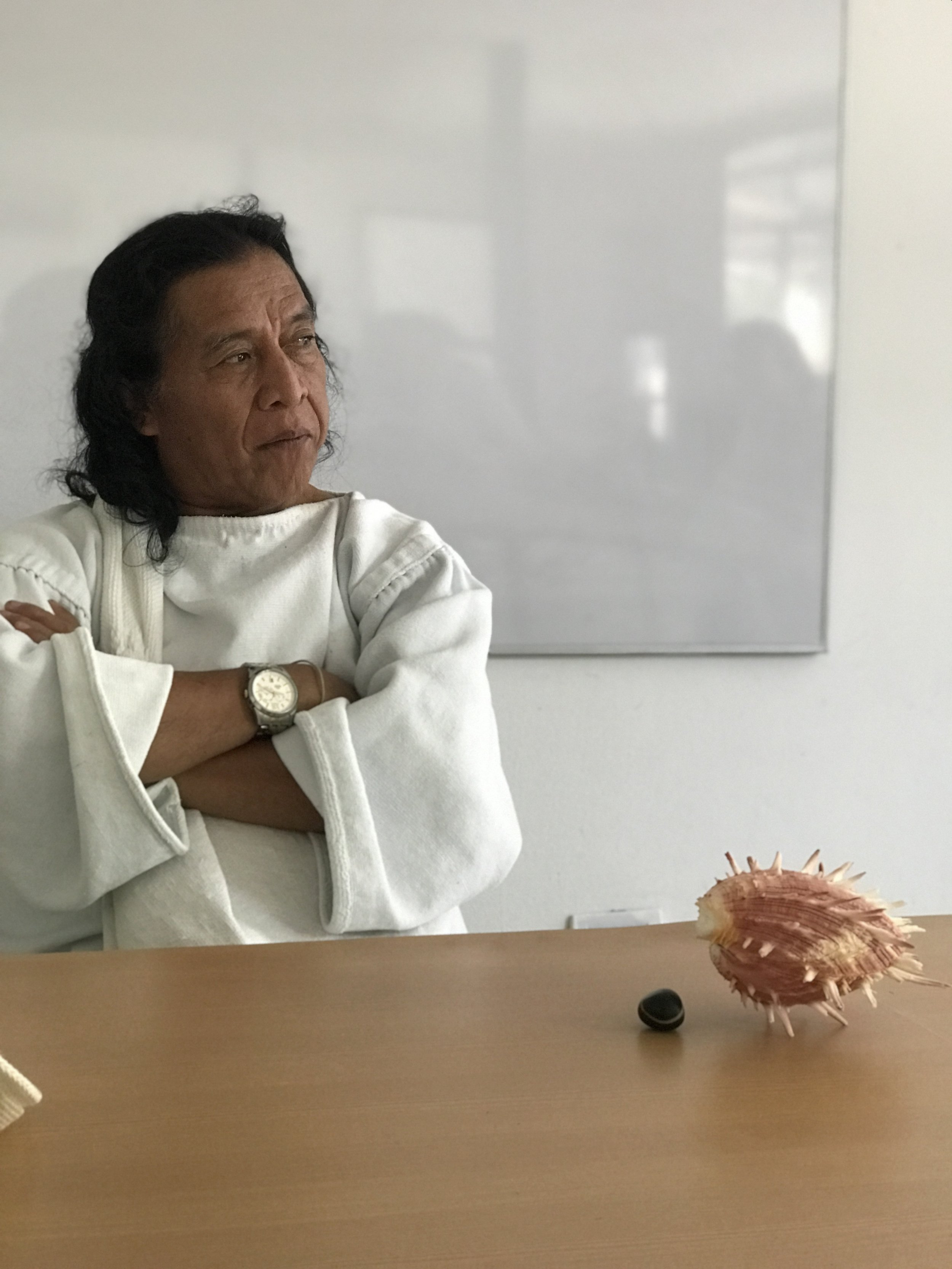Munekan Masha: Reviving Water in the Sierra Nevada de Santa Marta
Project
Múnekañ Masha (‘let it be (re)born’) is a transdisciplinary, collaborative, ecological restoration project, endorsed by the UNESCO-MOST BRIDGES Coalition. The project supports its indigenous partners, the Kogi people, to influence land management methods by disseminating their techniques to a wider audience.
This ground-breaking project is a joint venture of the Kogi Mamas (spiritual leaders) and non-indigenous scientists. They are working to share their knowledge-systems at a specially-chosen location in the north face of the Sierra Nevada de Santa Marta in Colombia where the Mamas will work to revive damaged and desiccated ancestral land.
How can indigenous knowledge and environmental science work together?
Bringing indigenous knowledge and “mainstream” science together aims at creating better and more inclusive solutions to face the climate emergency. More than that, it aims at bridging the gap between two different knowledge systems and to challenge the notion of “who is the expert” in land management and environmental conservation.
Múnekan Masha intends to put Kogi indigenous ecological practices and natural scientific conservation into dialogue, supported and mediated by anthropological expertise, to jointly identify, assess, and regenerate degraded pieces of land, in particular dried water sources.
The title “Munekan Masha” follows the Kogi premise that their ancestral territory is a living, conscious entity that guides its own regeneration, constituting forces that humans need to allow to be (re-)born.
The signatures/fingerprints of the members of the Kogi community on the project agreement.
Project Aims
The overall aim is to develop an intercultural and transdisciplinary sustainability model based on knowledge exchange and mutual understanding that, although emerging from a specific context, can be replicated in other situations, places and communities.
More specifically, the aims of this project are to assist the Kogi indigenous people to teach a group of academics how to restore degraded land in the Sierra Nevada de Santa Marta, Colombia using indigenous knowledge and methods collaboratively. By documenting Kogi methods, monitoring environmental changes and facilitating dialogue between indigenous and environmental science practitioners, the project will be able to integrate knowledge systems and generate inclusive sustainable models for ecosystem health and land management. The project’s wider significance will be to demonstrate that indigenous knowledge can usefully inform environmental interventions and produce alternative, culturally sensitive outcomes if included.
How you can help
This is a 3-year project which will include first buying the land for the OGT on which the project will be based. It will be necessary to purchase the chosen lands so that the Kogi can restore the environmental damage done by cattle farming and other human interventions.
And that is where you come in! This is a real opportunity to help the Kogi and the non-indigenous scientists understand each other and work together to begin to resolve the environmental crisis that faces us.
You can help this project by donating directly to the Tairona Heritage Trust. All donations go directly to helping the Kogi and developing the Munekan Masha project.
Partners
The project was jointly developed by the Kogi people (represented by their organisation, the OGT), in collaboration with the Tairona Heritage Trust, and with the academic support of the University of Wales Trinity Saint David. The project is endorsed by the UNESCO-MOST Bridges Sustainability Science Coalition.
The French NGO Tchendukua is an institutional ally.
The first phase of the project is anticipated to run for three years. It will see anthropologists and environmental conservationists work with and record how the Kogi revitalise degraded land, the aim of which is to establish the importance and value of their knowledge and methods in protecting and sustaining nature.
Meet some of the members of
the Project Team
-
Arregoces Conchacala
PROJECT OVERSIGHT
Arregoces is the Cabildo of Organisation Gonawindua Tayrona (OGT) and has oversight of the cultural integrity and focus of the project.
-
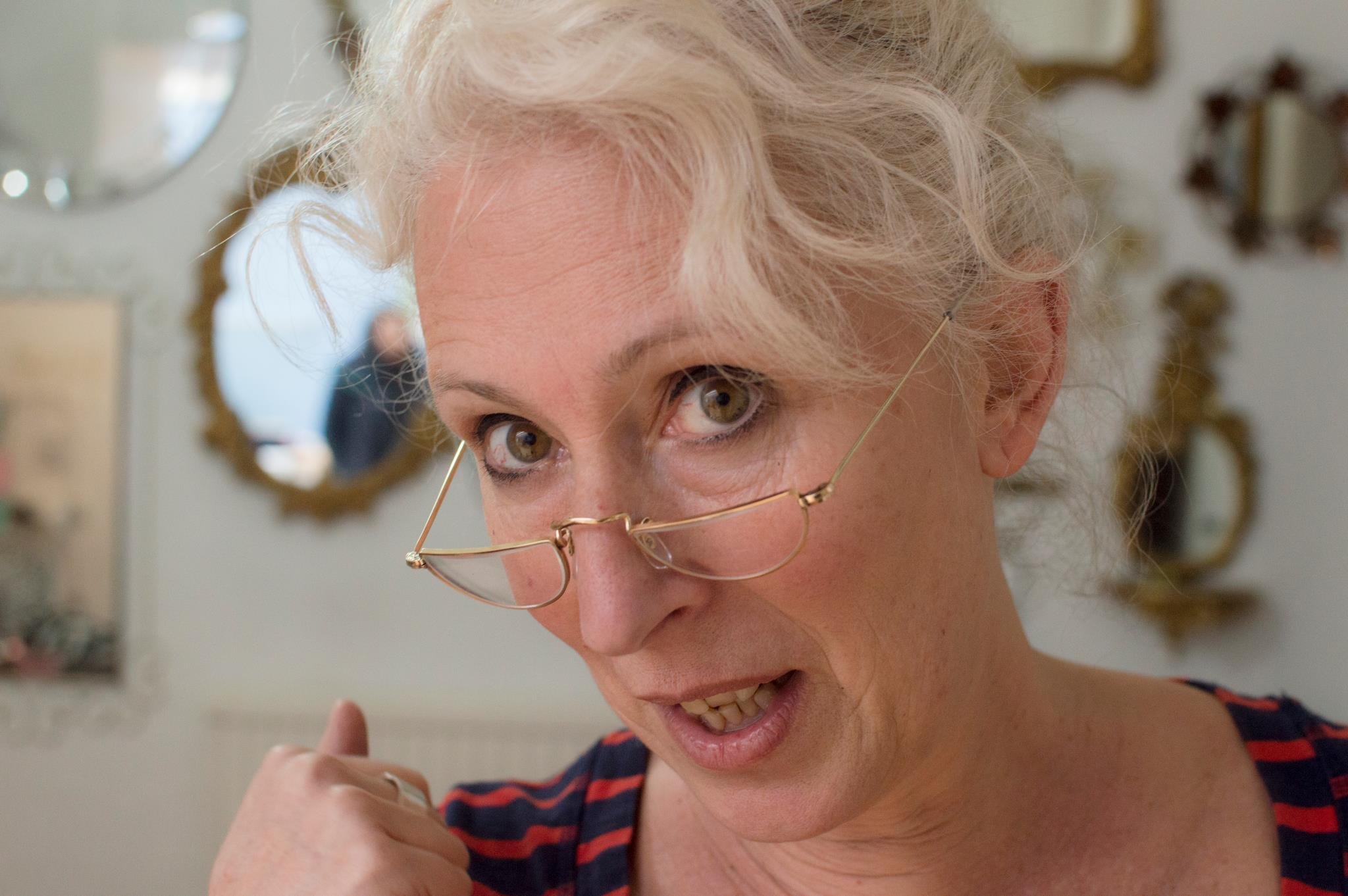
Dr. Luci Attala
THT PROJECT COORDINATOR
Luci is an environmental anthropologist whose work focuses on socio-cultural relationships with water and water security.
-

Dr. Rodrigo Camara-Leret
ETHNOBOTANIST
Rodrigo is an Assistant Professor at the University of Zurich. His research is centred on the conservation of biological and cultural heritage. Responsible for introducing the concept of indigenous knowledge networks, he brings the human dimension into studies of ecosystem services that traditionally focused on the ecological component.
-

Dr. Ingrid Olivares
BIODIVERSITY EXPERT
Ingrid is a researcher at the University of Zurich. Her research aims to understand how plant communities have evolved and are maintained with the ultimate goals of contributing to conserve biodiversity and mitigate global change.
-
Alejo Sauna Mamatacan
LINGUISTIC ADVISOR
Kogi scientist working on translation (Kabbaga-Spanish).




